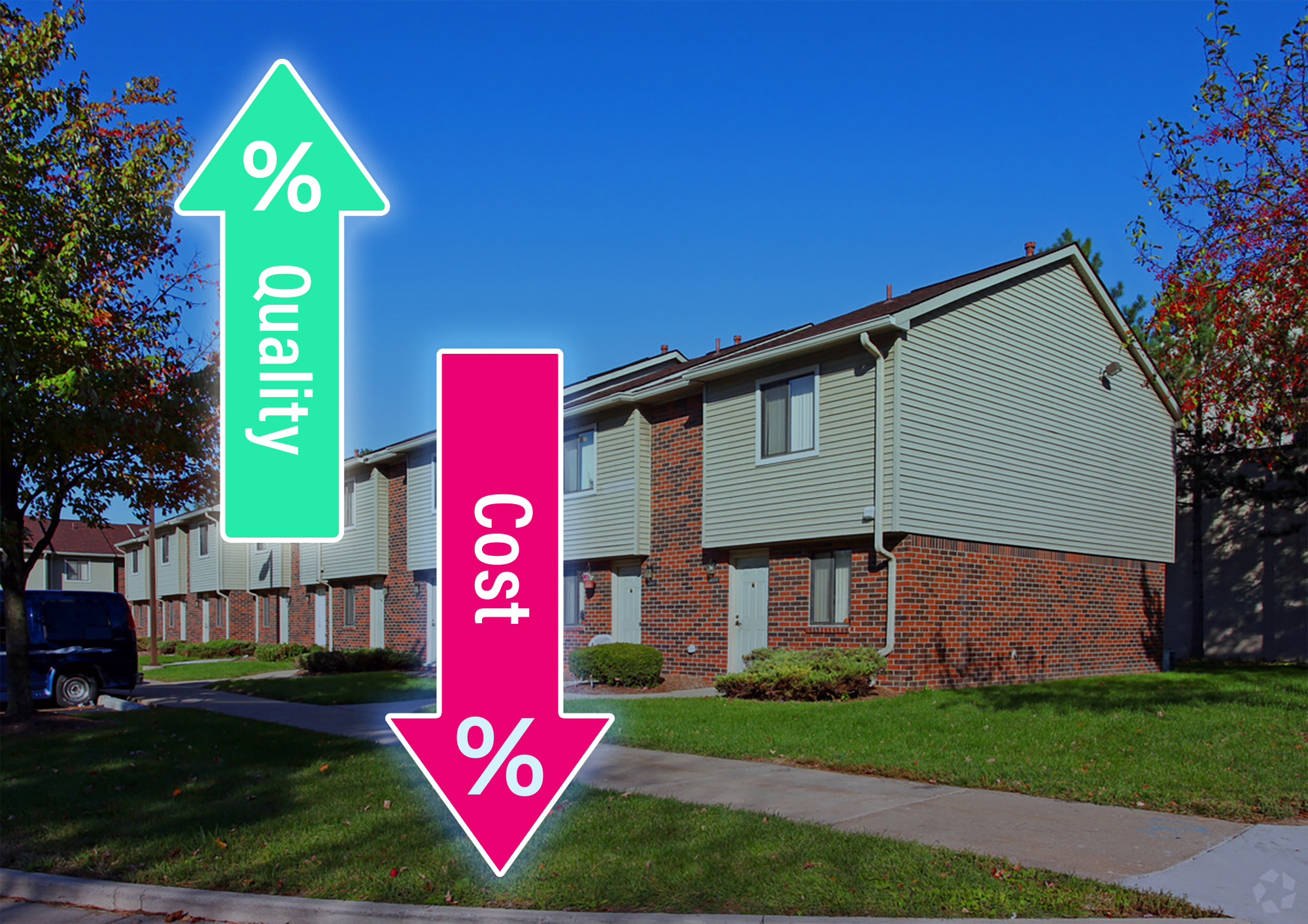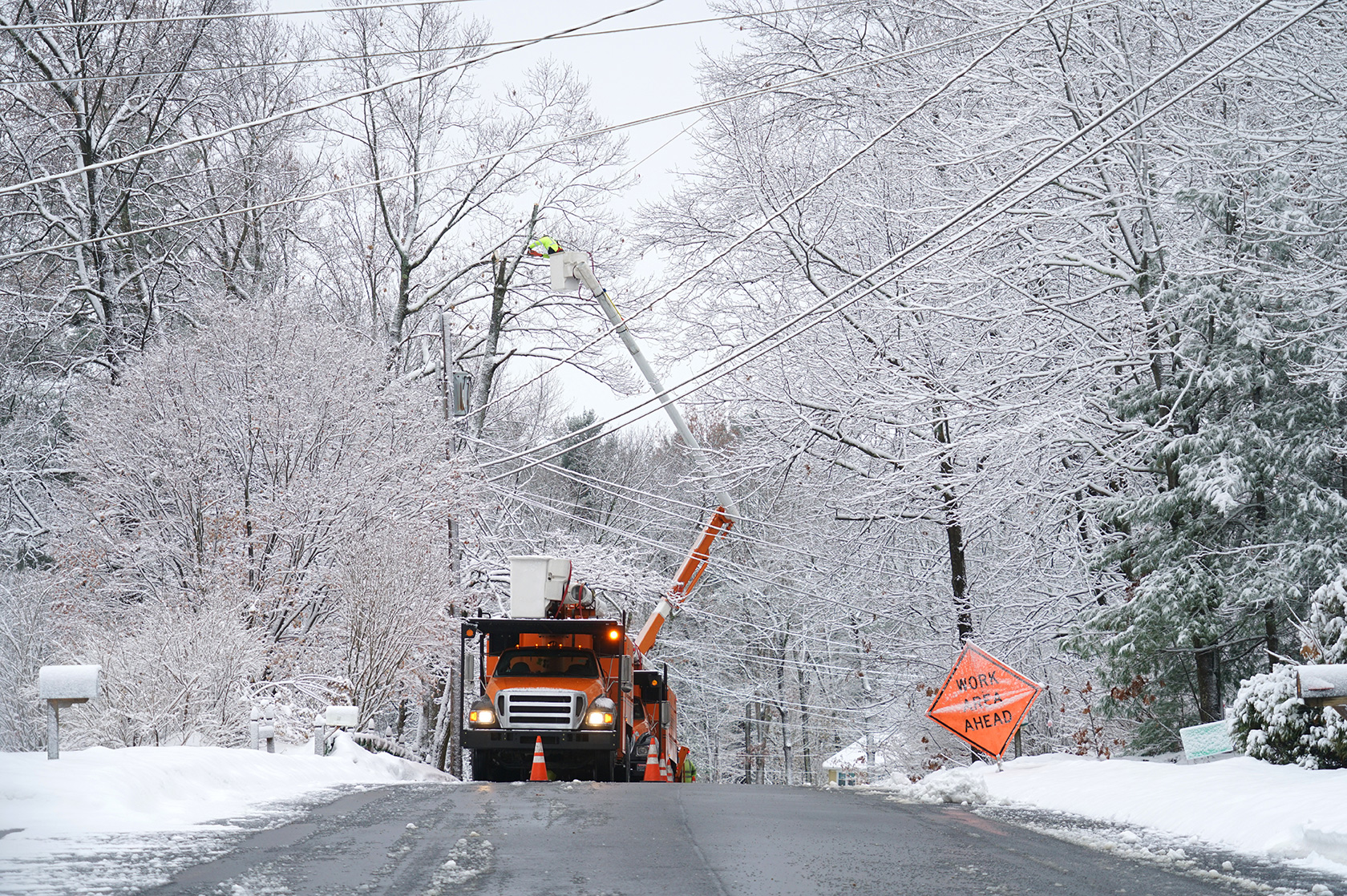Three Key Facts:
-
- Hundreds of Michigan residents in eight different apartment communities will see their homes retrofitted to make them more energy efficient and better able to withstand winter storms.
- The project, funded through the Biden-Harris Inflation Reduction Act, will lead to lower energy bills for the residents, many of whom are seniors and/or low-income families.
- The improvements will result in improved indoor air quality and will integrate cheaper, renewable energy sources.
-
Eight multi-family housing developments in Michigan will soon get upgrades aimed at lowering residents’ power bills and improving their living conditions, thanks to millions in federal loans and grants.
These improvements will lower residents’ power bills and make their homes more livable. The projects will add energy-saving features, use renewable energy like solar power, and help protect the buildings from extreme weather. Many of the housing developments are for low-income senior citizens and families. By cutting their energy costs, they will have more money to spend on other living expenses.
In a statement announcing some of the awards this July, HUD Acting Secretary Adrianne Todman said, “[We] are awarding crucial funds to renovate thousands of homes, making enhancements such as improved indoor air quality and integrating renewable energy sources. These changes are not trivial – they will reduce costs and increase the quality of life of the people we house.”
The first round of awards, announced in November 2023, included a multi-million dollar grant to North Hill Farms Apartments, a 525-unit complex in Pontiac; and Spring Valley Crossing, a 55-unit senior-living apartment complex, in Kalamazoo. In July, six more awards were announced: Cambridge Towers; Plymouth Square; 8330 on the River in Detroit; The Village of Westland senior community in Westland; Danish Village in Rochester Hills; and North Port Village in Port Huron.
According to Lauren Zullo, managing director of environmental impact with the non-profit Jonathan Rose Companies which owns three of the Detroit-area housing developments, their group plans to replace Plymouth Square Village roofs with better insulation, restore building facades, and install solar panels on the rooftops. They will also replace the elevator and install sliding doors for its 280 units. In addition, they will also install a battery backup system at Plymouth Square Village to ensure residents have power during outages caused by extreme weather.
John Podesta, a Biden-Harris administration senior adviser for energy innovation, said the funding for Spring Valley will save money for the national nonprofit, faith-based group which owns the facility. This, he said, “will then make the ability of that group to be able to provide better service to those seniors.”
The program was first announced in Detroit in May 2023 at an event attended by Podesta, Housing and Urban Development (HUD) Secretary Marcia Fudge, Detroit Mayor Mike Duggan, and other officials. The funding is part of HUD’s Green and Resilient Retrofit Program, funded through the Biden-Harris Inflation Reduction Act. “What happens so often in this country is that as housing units get modernized, people of low-income get the latest amenities last and least,” Mayor Duggan said. “What the President has done through the Inflation Reduction Act is make sure people of all incomes can benefit.”





